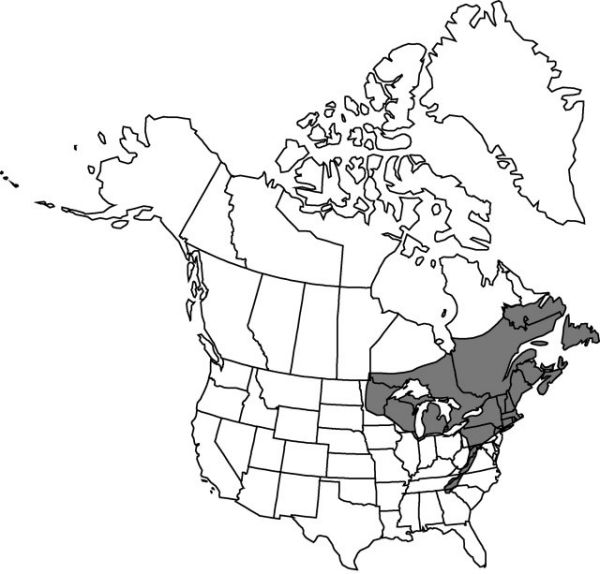Clintonia borealis
Atlantic J. 1: 120. 1832.
Plants 2–5 dm; rhizomes thin, spreading. Cauline leaves 2–4; blade dark glossy green adaxially, oblong to elliptic obovate, 15–30 × 5–10 cm. Inflorescences in short, terminal racemes, 3–8(–10)-flowered; bracts 1(–3), narrowly foliaceous. Flowers nodding; tepals yellow to yellowish green, narrowly oblong, 12–16 × 3.5–4.5 mm; filaments 12–17.5 mm; anthers oblong, 2–3.5 mm. Berries ultramarine blue, ovoid, 8–16-seeded, 8–12 mm. Seeds 3–5 mm. 2n = 28, 32.
Phenology: Flowering early May–early Jul.
Habitat: Rich coniferous, mixed, or deciduous woods
Elevation: 0–1600 m
Distribution

St. Pierre and Miquélon, Man., N.B., Nfld. and Labr., N.S., Ont., P.E.I., Que., Conn., Ga., Ill., Ind., Maine, Md., Mass., Mich., Minn., N.H., N.J., N.Y., N.C., Ohio, Pa., R.I., Tenn., Vt., Va., W.Va., Wis.
Discussion
Throughout the range of Clintonia borealis a stabilized, 2n = 32 cytotype has been reported (F. H. Utech and L. B. Thien 1973; B. M. Kapoor 1973).
Selected References
None.